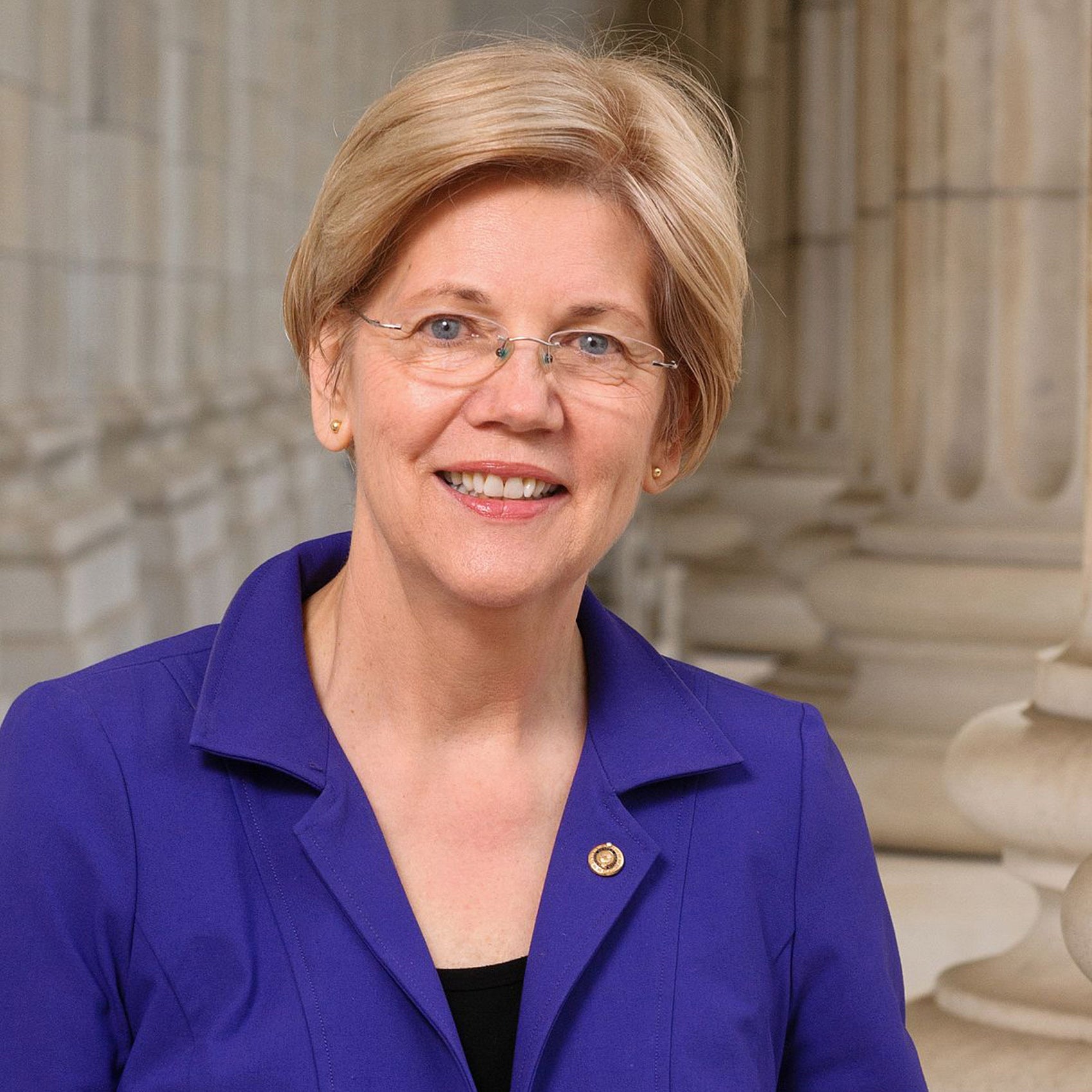Sen. Elizabeth Warren of Massachusetts will join Harvard Law School’s special Commencement for the Classes of 2020 and 2021 on Sunday, May 29, to acknowledge and help celebrate their accomplishments. Both classes, the official graduation ceremonies for which occurred remotely amid the COVID-19 pandemic, have been invited back to campus for a long-awaited in-person commencement celebration that will take place in Harvard Yard and at Harvard Law School.
She will participate in a conversation with Harvard Law School Dean John F. Manning ’85 about the important role lawyers play in society and the ways in which she has used law to further justice and the public good throughout her career.
As the featured speaker at last year’s Class Day, Warren urged graduates to summon the courage to step off the traditional legal path to make a meaningful difference in the world.
“A law degree,” particularly one from Harvard Law School, said Warren, “is a powerful tool. How you use it is up to you. You may choose to use it quite profitably helping clients who are already rich and powerful get richer and more powerful. … But my own advice is to respectfully ask you to consider other paths where the need is great.”
Recognized as one of the nation’s top experts on bankruptcy, Warren is currently the Leo Gottlieb Professor of Law, Emerita at Harvard Law School. The former presidential candidate and longtime professor first joined the Harvard Law faculty in 1992. In 1997 and 2009, she received the Sacks-Freund Teaching Award in honor of her teaching ability, openness to student concerns, and contributions to student life. Before coming to Harvard, she taught law at the University of Pennsylvania, University of Michigan, University of Texas, University of Houston, and Rutgers University.
Throughout her time at Harvard, Warren was a vocal critic of predatory lending practices of the mortgage and credit card industries, and of government policies that she believed benefited Wall Street but not everyday consumers. In a 2007 article in Democracy, “Unsafe at Any Rate,” she outlined her ideas for the creation of a Consumer Financial Protection Agency, modeled after the Consumer Product Safety Commission. During the Obama administration, Warren was appointed to serve as assistant to the president and special advisor to the secretary of the treasury on the Consumer Financial Protection Bureau, helping stand up the new federal authority she’d helped envision. In 2008, Warren also was appointed to a five-member bipartisan congressional oversight panel to monitor the Treasury’s economic rescue plan — a $700 billion economic bailout package, known as the Treasury Department’s Troubled Asset Relief Program, or TARP.
After teaching at Harvard Law School for nearly two decades, Warren launched a bid for the U.S. Senate seat for Massachusetts in 2012. A first-time political candidate, she cast herself as a fighter for the middle class, an economic activist, and a champion of women’s causes. She won the election and assumed office in January 2013. She was re-elected to the Senate in 2018, capturing 61 percent of the vote.
Warren is a member of the Senate committees on Banking, Housing and Urban Affairs; Finance; Armed Services; and the Special Committee on Aging.
In February 2019, Warren announced her candidacy for the Democratic nomination for president of the United States. When she ultimately suspended her campaign in March 2020 after a hard-fought set of primary contests, she promised to “stay in the fight for the hard-working folks across the country.” And Harvard Law students left post-it note messages on her faculty portrait in Wasserstein Hall, thanking her for her campaign and sharing how it impacted them: “You inspire me to push for policy for the people!” said one note. “You’re my shero,” said another.
Warren has written more than 100 scholarly articles and 12 books, including bestsellers “The Two-Income Trap” and “All Your Worth,” both co-written with her daughter Amelia Warren Tyagi. Her newest book, “Persist,” examines the triumphs and frustrations of her presidential bid and delves into the perspectives that have shaped her career and political views. Time Magazine has named her one of the 100 most influential people of the year three times, and the National Law Journal recognized her as one of “The Decade’s Most Influential Lawyers.”
A native of Oklahoma, Warren received her J.D. from Rutgers Law–Newark and her B.S. from the University of Houston.
